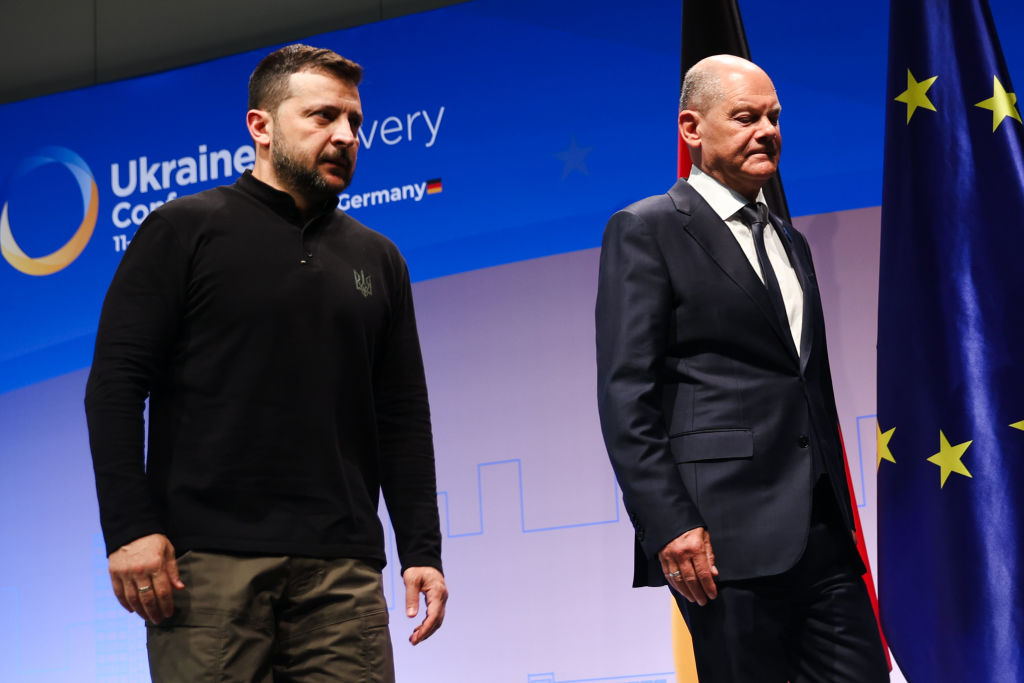Could the people responsible for blowing up the Nord Stream 2 pipeline in September 2022 now also blow up the German coalition government? This is a question that certainly weighs heavily on Chancellor Olaf Scholz’s mind as more evidence pours in, supporting the theory that sabotaging the natural gas connection between Russia and Germany was a Ukrainian operation.
There are still debates concerning to what degree the highest echelons of the Zelensky government were involved, but the Western press has this week published claims that Ukraine’s President did in fact approve such a plan and only withdrew his support as a result of US pressure.
According to the Wall Street Journal, “one of the most audacious acts of sabotage in modern history” was concocted “out of a night of heavy boozing and the iron determination of a handful of people who had the guts to risk their lives for their country”. What sounds like the plot of an episode of Hogan’s Heroes, however, might not entirely hold up under closer scrutiny. In particular, the allegation that governments — and not just private individuals — were involved is gaining traction. It is now hard to find anyone who’ll deny that there were debates among the Ukrainian leadership to strike against the pipeline; what’s more, there are suspicions that Poland was informed as well.
The latter suggestion is supported not only by Polish resistance to cooperate with German investigators, but by a now-deleted tweet from Radosław Sikorski — who has since become Poland’s Foreign Minister — thanking the US for blowing up the pipeline. Then there’s the failure of Polish authorities to act on an arrest warrant issued by Germany, calling for the detention of a Ukrainian citizen believed to be involved.
German authorities have clearly been working more diligently than expected on uncovering the plot, and one has to wonder whether the country’s government is itself happy about this. A popular immediate reaction to the news of Ukrainian involvement was to double down on the explanation that “Russia was behind it”. For instance, Gerhard Schindler, who was President of the Federal Intelligence Service (BND) between 2011 to 2016, told the German Newspaper Die Welt that “the investigation results may point towards a Ukrainian group. But that does not mean that Ukraine was the client. From an intelligence perspective, there is much to suggest a false flag operation by the Russians. They are capable of it.”
Ironically, this view is allegedly supported by intelligence linking Ukrainian nationals to Moscow — but this information is provided by Polish intelligence services, which otherwise have not been particularly helpful with German investigations.
It is hard to overstate the implications of what potentially unfolded two years ago. That is: a plot to destroy critical energy infrastructure in a Nato member state (Germany), potentially abetted by another Nato state (Poland), and known to the leader of the alliance (the United States). Even the Wall Street Journal report admits that the attack was “an assault on critical infrastructure that could be considered an act of war under international law”.
While it is unlikely that Germany would declare war or invoke Article 5 of the North Atlantic Treaty, this will still have domestic implications. Political parties critical of unconditional support for Ukraine are already in the ascendancy, especially the Alternative for Germany and the Alliance Sahra Wagenknecht, and will most certainly use these recent revelations in their campaigning.
The plan of the original saboteurs was to strike against Vladimir Putin and sever his energy connection with Germany. Now, however, there is a chance that this plan could backfire. Instead of weakening Russia, it could well undermine German support for Ukraine.











Join the discussion
Join like minded readers that support our journalism by becoming a paid subscriber
To join the discussion in the comments, become a paid subscriber.
Join like minded readers that support our journalism, read unlimited articles and enjoy other subscriber-only benefits.
Subscribe